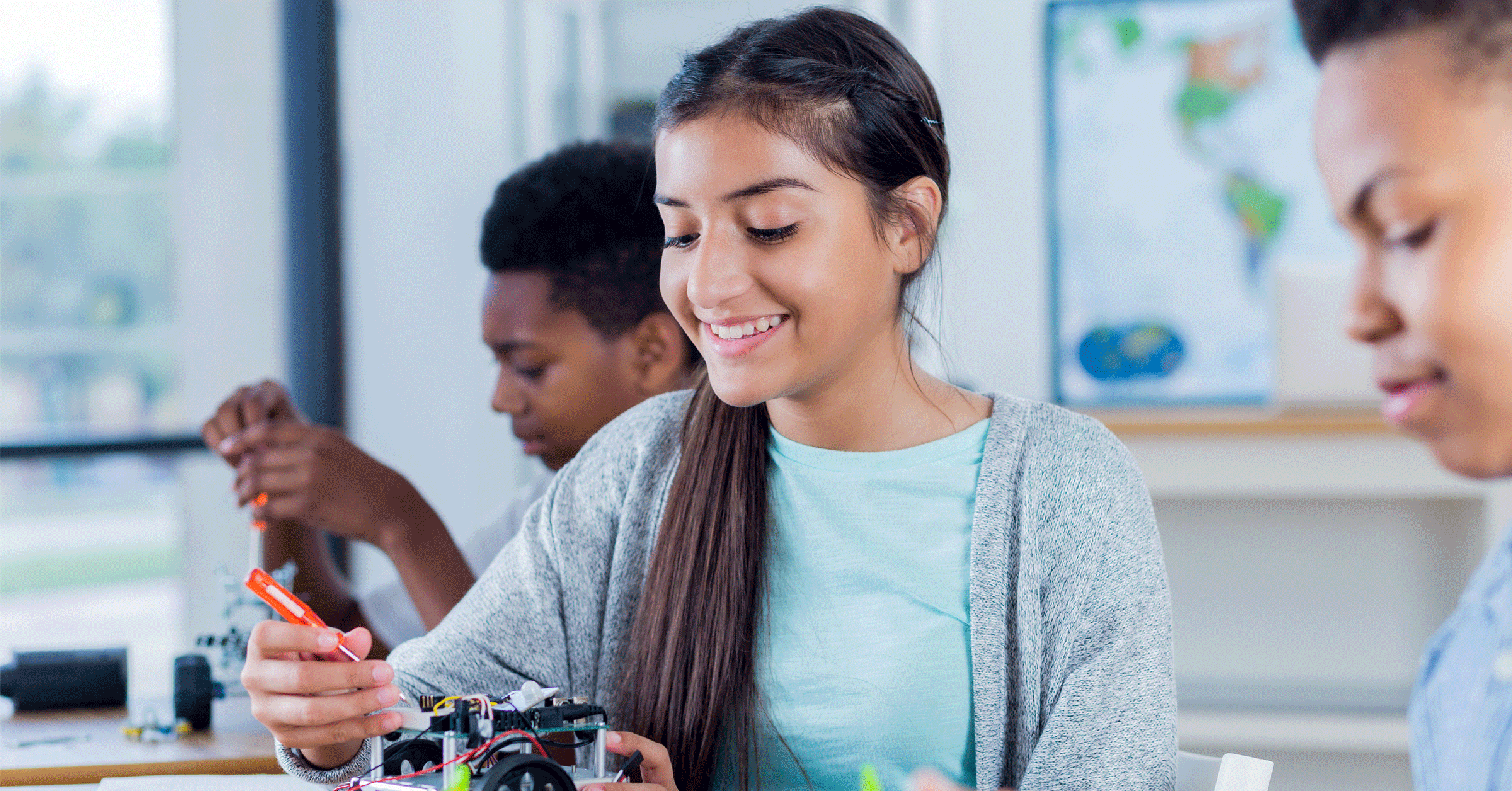Second Step® Insights
Why Strong Human Skills Make Students Future-Ready
November 5, 2025 | By: Chad Ragland

What does it truly mean to prepare students for the future? As the world undergoes major technological and economic changes, the best preparation for an uncertain future is fostering the essential human skills that help students thrive in any academic environment, social situation, or professional setting—no matter what tomorrow brings.
More than just “soft” skills
Conventionally, academic skills are often thought of as separate from “soft” skills, but human skills are anything but ineffectual. Human skills are essential building blocks that make up the foundation of all academic learning and personal growth. They’re durable, transferable, and highly desirable in every environment, from workplaces to college campuses. We wouldn’t dream of sending students into the world without math or reading; the same should be true for decision-making, collaboration, problem-solving, and communication.
By prioritizing the development of human skills like adaptability, self-awareness, resilience, and empathy, educators can ensure their students are prepared to thrive, no matter what the future holds. Here are five ways strong human skills make students future-ready.
Human skills are built to last
Experts in the field of college and career readiness talk about the importance of durable skills. Some of these are hard technical skills—electricians will likely always be employable, for example—but truly future-proof skills are those that young people will always need, regardless of economic shifts or technological leaps.
Technical proficiency can become obsolete, but human skills like problem-solving, executive functioning, and goal-setting are the foundation that enables a student to master any new technology, navigate any new field, and succeed in any possible future.
Human skills help students navigate uncertainty and complexity
Stepping into the unknown is a part of growing up. And while there may not be a map for navigating the complexities of careers, relationships, and a rapidly changing society, human skills can be a compass to help young people find their way. Skills like adaptability, decision-making, and resilience are especially crucial for navigating life’s twists and turns, as they teach students to view complexity not as a barrier but as an experience to navigate through flexible thinking, sound judgment, and persistent effort.
Human skills are highly sought after
Today’s colleges and employers aren’t only looking for high GPAs and technical certifications; they’re actively seeking evidence of human skills in action. Universities look for applicants who demonstrate both collaboration and self-efficacy because those students are more likely to thrive in independent and demanding academic environments.
Companies consistently rank problem-solving, teamwork, and effective communication as the most desirable traits, often valuing them over specific technical degrees. These human skills are critical for gaining admission, getting hired, and growing both personally and professionally.
Human skills help students stay connected
As young people step outside the familiar halls of school, it becomes increasingly important—and increasingly difficult—to remain connected to a strong social community. Skills like communication, relationship-building, and social awareness help students discover and build new connections and relationships throughout their lives, whether in a new workplace, on campus, or in a new city or neighborhood.
By empowering students to connect with others authentically, strong human skills prevent isolation and ensure that students can forge the meaningful, supportive relationships they need for long-term well-being and success. Future-ready students have the tools to stay connected.
Human skills are AI-proof
As artificial intelligence continues to develop, human skills like self-awareness, communication, and empathy will only become more important. As AI masters algorithmic tasks and even complex technical skills, the most valuable skills will be the ones that machines can’t replicate. AI can process data efficiently, but it can’t come up with a truly original idea, make a difficult decision based on compassion, or pursue a lifelong dream.
These unique human abilities—to imagine new possibilities, to lead with feeling, and to solve problems that don’t yet have a formula—will be what empower young people to thrive.
Future-ready students have strong human skills
By investing in human skills programs, educators can ensure students possess more than just technical and academic competency. With strong human skills, students hold a compass for navigating change and a skill set that remains essential in any social or economic landscape. The future belongs to young people who can connect, adapt, and lead.
To learn about how Second Step® programs can help students in your school community become truly future-ready, connect with our Education Partnerships Team today.

Chad Ragland
Chad Ragland is regional manager of Education Partnerships at Committee for Children, where he helps schools bring human skills education to life through Second Step programs. Chad joined Committee for Children in 2023, having spent nearly 20 years working in the K–12 market. He works with school districts and state agencies to adopt and implement Second Step programs across the northern, central, and eastern United States, and he plans regional thought-leadership events featuring experts innovating in the field of human skills instruction. Chad holds a BA from the University of Central Florida and an MBA from Florida State University.